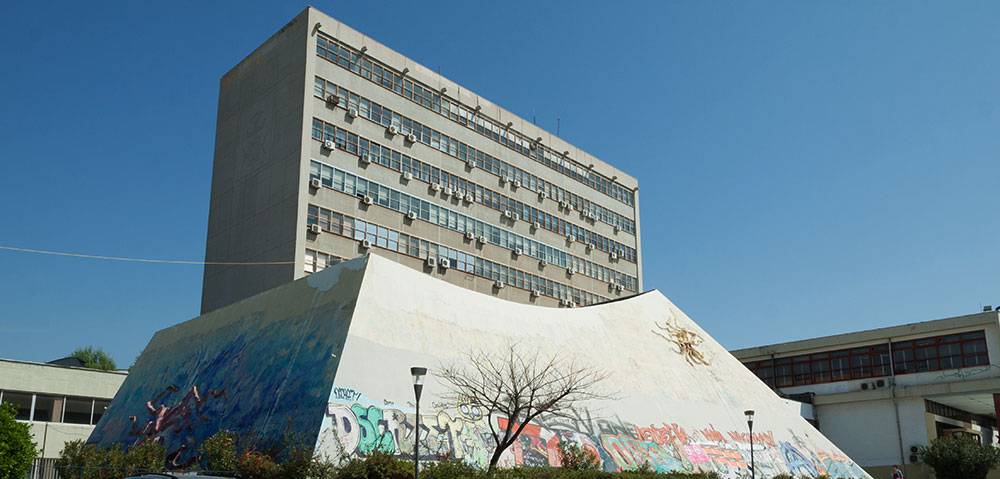Civil Engineering School is one of the 41 Departments of Aristotle University of Thessaloniki, the biggest academic establishment in Greece. It belongs to the Faculty of Engineering, which comprises of 8 Schools, among which Civil Engineering School is the oldest and largest, in terms of staff, building infrastructure and number of students.
The Department of Civil Engineering, established in October 1955, is the oldest department within the Faculty of Engineering. In its initial stages, it constituted of 14 chairs, not all staffed from the beginning. In the years followed, new chairs were added, in accordance with the planning of the Faculty and the requirements of the study programmes, while the number of teaching staff increased and the department advanced on a self-reliant course, also offering its help to the new departments within the Faculty.

An essential stage in the framework and structure of the School came in 1982, following application of Law 1268 concerning universities. According to this law, the School constitutes a self-contained academic unit, which awards a specific degree and which together with the other 7 schools constitutes the Faculty of Engineering.
The School is organized into 4 Divisions, to which 21 legislated laboratories now belong
- Division of Structural Engineering
- Division of Hydraulics and Environmental Engineering
- Division of Geotechnical Engineering
- Division of Transport, Infrastructure, Management and Regional Planning Engineering
The four Divisions reflect the main sub-disciplines of civil engineering. Each Division is responsible for a number of modules within the graduate and postgraduate courses. They are also focal points for the School research groups. Although they function as organizational units, there is considerable interaction between them particularly for high-level postgraduate teaching and research. The main aim of the School of Civil Engineering is to train students by producing and transferring scientific and technological knowledge in all fields of civil engineering. At the same time, it aims at cultivating a sense of high social and moral responsibility in all of its members, tutors and students, based on democratic values, freedom of distribution of ideas and freedom of expression. It also aims to promote science and knowledge through ongoing research to facilitate the development of the country.

